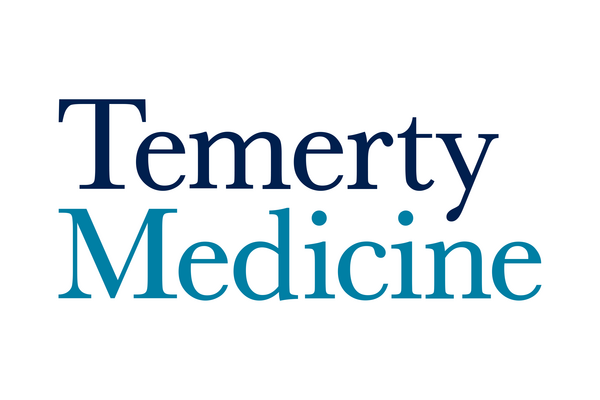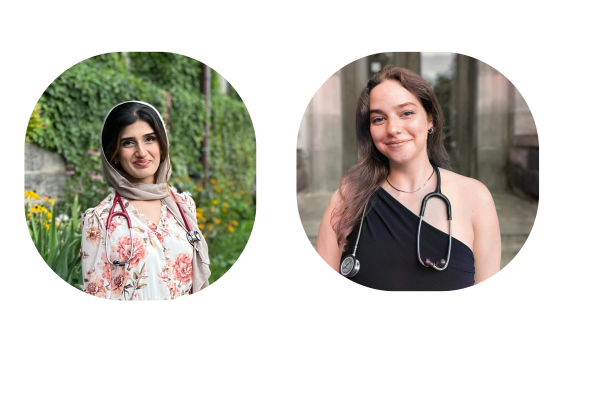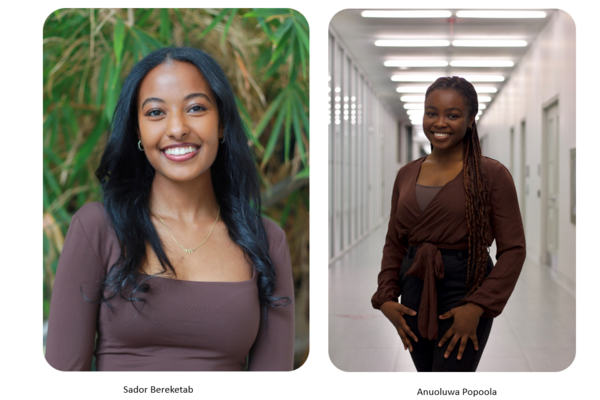Main Second Level Navigation
O-Week with Team NitrØ
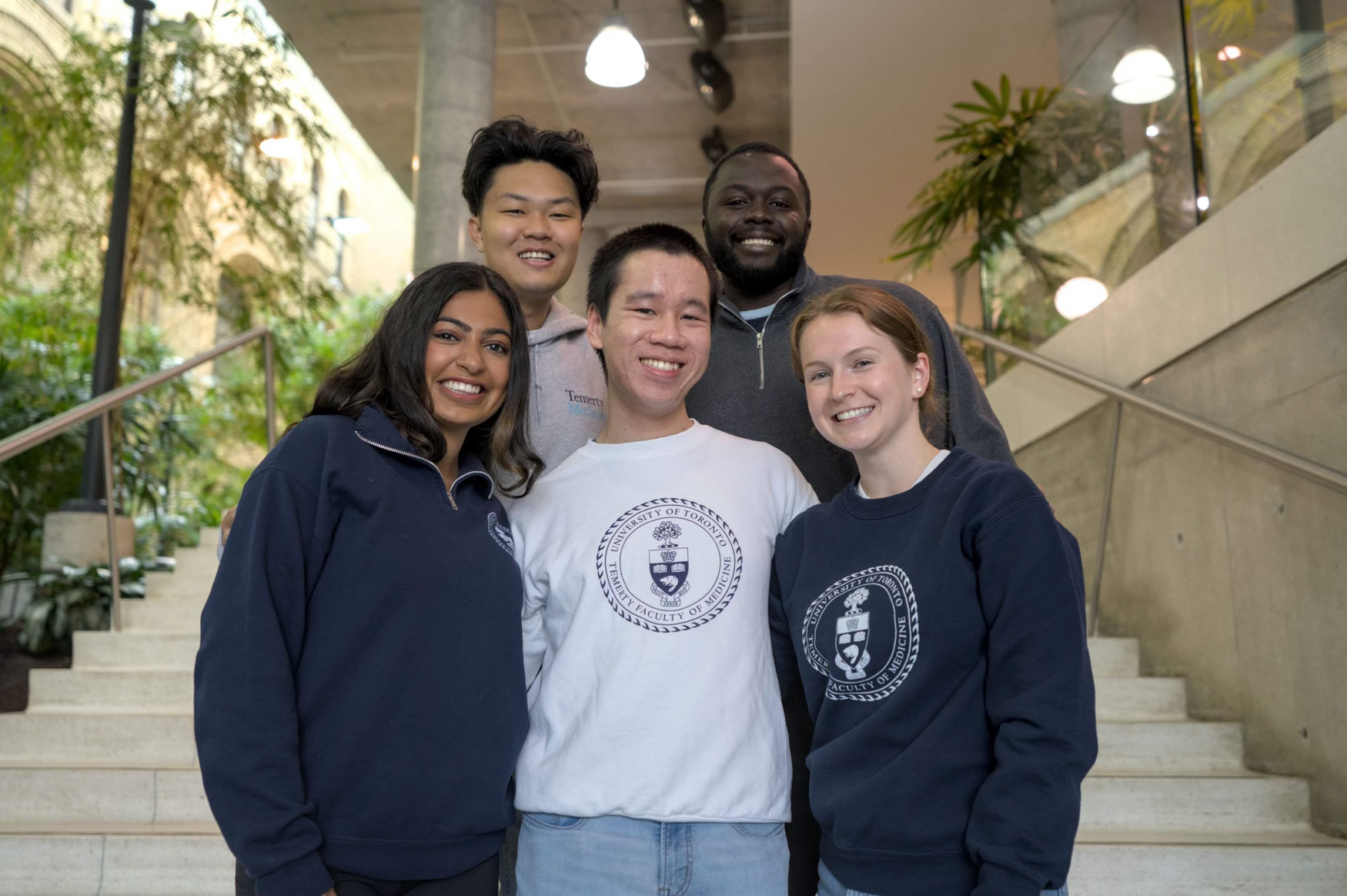
Welcome to the most anticipated week of the year – O-Week! As you embark on this exciting journey into the world of medical school, you're likely brimming with anticipation, curiosity, and perhaps a touch of nervousness.
Embarking on a career in medicine is a journey filled with challenges, triumphs, and invaluable lessons that shape the future of healthcare. As you step into the world of medical school, you're not just starting a new chapter; you're entering a realm where every experience is a building block for your future.
That's where Team NitrØ comes in to shed light on this path. We've compiled a series of interview questions to share some insights from seasoned medical students who have walked the same halls, faced similar challenges, and emerged with wisdom to share. Get ready to transform your nerves into excitement, your questions into answers, and your journey into a success story. Let's make this week count!
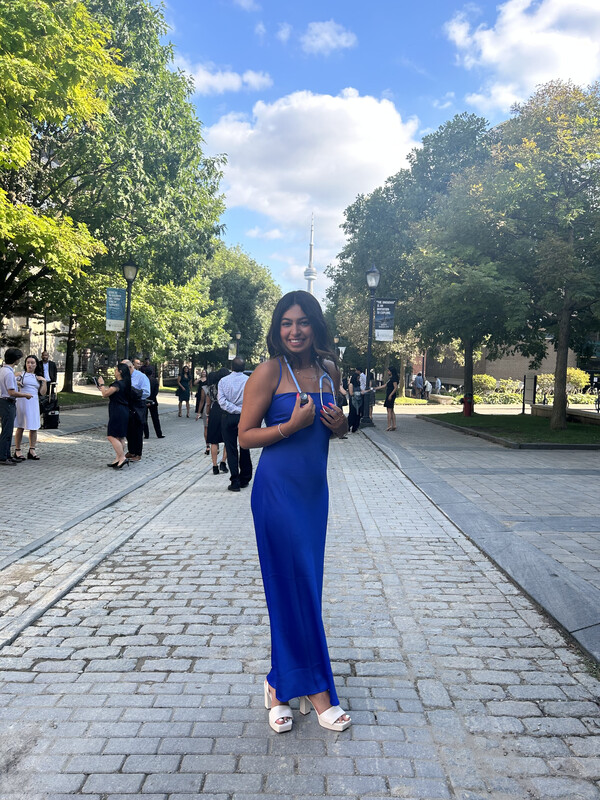
Temerty Medicine: Can you tell us a bit about your background and what led you to pursue a career in medicine?
Amber Jolly: Prior to medical school, I pursued a Bachelor of Medical Sciences Degree from Western University and a Master of Biotechnology Degree in Digital Health and Data Science. I aspired to pursue a career in medicine because I am passionate about leveraging my love for sciences and my fluency with digital health solutions to deliver high quality and innovative patient care, while utilizing my positionality as a physician to amplify patient voices in advocating for a health care system with increased accessibility and fewer redundancies.
TM: What are the most valuable lessons or insights you've gained during your time as a medical student that you feel are essential for incoming students to understand as they begin their medical education journey?
AJ: I have learned it is imperative to be curious and open-minded as a medical student. I would encourage incoming students to shadow as many specialties as they can, as you never know which one you will like the most until you try it and have other experiences to compare it to. As well, as medical students we are so fortunate to have an abundance of opportunities in research, volunteering and extracurriculars available to us. I think it is important for incoming students to keep in mind that in order to be successful as a medical student, you do not need to join every opportunity and you should try your best to not compare yourself to what your peers are doing. Every student in medical school is on their own unique journey!
TM: How have you balanced the demanding workload of medical school with your personal well-being and what advice would you give to incoming students on maintaining a healthy work-life balance?
AJ:I truly believe that the key to academic and professional success is being intentional about finding balance through nurturing your hobbies and social relationships. Through establishing a regular exercising and cooking routine while in medical school, in addition to investing time to strengthen my personal relationships, I have improved my physical health, my mental health and reduced episodes of burn out. When incoming students are facing a particularly challenging academic time, I would encourage them to be intentional about taking a break to do something they enjoy, such that they can reset before tackling studying with a fresher mind.
TM: Are there any campus activities you enjoy when you are not studying or working with patients?
AJ:I have really enjoyed playing intramurals in my first year – I was involved in intramural dodgeball, soccer and flag football. I loved the opportunity to exercise, while simultaneously fostering relationships with fellow classmates in a non-academic setting, as well as meeting upper year peers whom I may not have otherwise met.
TM: What role has mentorship played in your medical school experience, and how do you intend to facilitate connections between incoming students and potential mentors during orientation?
AJ: Mentorship has been instrumental in helping me navigate the many unknowns associated with being a first-year medical student. I am someone with no family in medicine and who came into medical school unsure of which speciality I wanted to pursue. Therefore, I am grateful to have had mentors who openly shared insights related to understanding and overcoming barriers associated with being both a woman and a person of colour in medicine. During orientation, I will strongly encourage students to join mentorship programs offered by the Faculty of Medicine and steer students towards additional avenues for finding mentors by listening to their interests and directing them to opportunities potential mentors may be involved in.
TM: What's the most unusual or unexpected item in your medical school backpack that you can't live without?
AJ: My bike helmet! I’ve found biking to class, the hospitals and the gym to be the fastest method of commuting in Toronto. I love that I can get to where I need to go in a timely manner while also getting a little bit of exercise in!
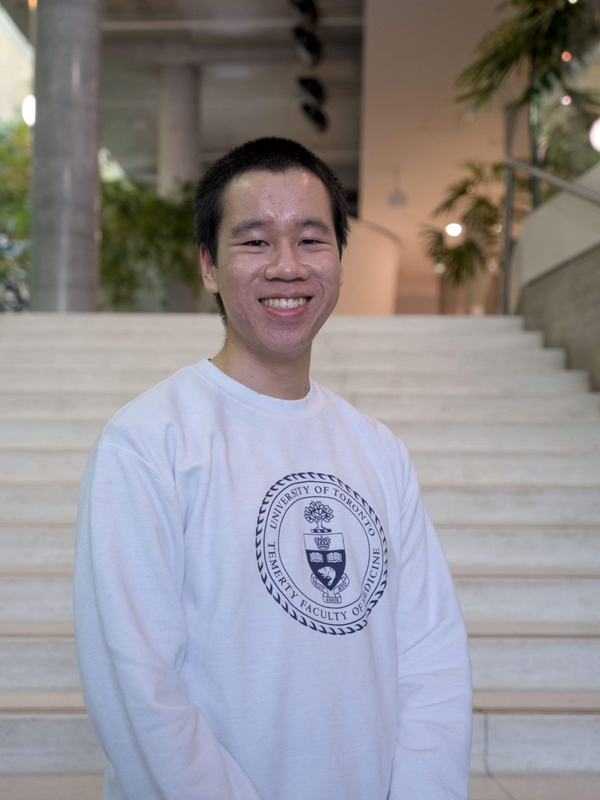
TM: Can you tell us a bit about your background and what led you to pursue a career in medicine?
DK: After figuring out that my dream of being an author may not be as attainable as I had made it out to be, I discovered my love for the sciences early on in high school. It was a mixture of experiencing my own health struggles in high school and the wonder that I felt learning about the human body that made me eventually decide to pursue an undergraduate degree in Health Sciences with the hope to one day be able to pursue a career in medicine. During the pandemic, I had the privilege of helping out with the COVID-19 vaccine rollout within my hometown public health unit first as a volunteer and 9 months later, as a member of the operations team. The time I spent working with the amazing staff at the vaccine clinics to protect the community that I grew up in motivated me even further to want to become a future physician.
TM: What are the most valuable lessons or insights you’ve gained during your time as a medical student that you feel are essential for incoming students to understand as they begin their medical education journey?
DK: It is easy to be overwhelmed by the amount of content that you are asked to know by the end of each week. Take the time early on in the year to determine which study strategy works best for you and fine-tune it as the year progresses, so it becomes the most efficient and effective strategy for you to retain content. After learning about a body system (i.e., respirology), I found it super helpful and interesting to shadow a physician in that specialty to further reinforce your learning and put knowledge into practice. As you begin your medical education journey, keep in mind that this learning is unique. It is no longer studying to ace a test nor to maintain a solid GPA. This is learning that will help you be a better clinician for your future patients in the years to come.
TM: How have you balanced the demanding workload of medical school with your personal well-being and what advice would you give to incoming students on maintaining a healthy work-life balance?
DK: No matter how busy my weeks would get, I would always try to carve out some time to hang out with friends, go on an extra walk with my dog, or catch up on my sleep. It sounds cliche, but at the end of the day, your health and well-being is more important than any test. Getting involved in extracurriculars and activities outside of med have always been a passion of mine. I teach piano on the weekends which helps keep me grounded and often helps me take my mind off of course content. Overall, you will all find the work-life balance habits that work the best for you! Med school is not easy! Take as much time for yourself as needed and enjoy this new learning journey that you are about to embark on.
TM: Are there any campus activities you enjoy when you are not studying or working with patients?
DK: Here at MAM, the UTM campus is surrounded by so much beautiful scenery that I love exploring around Erindale Park which is just a short walk away from campus! My friends and I have gone there a couple of times after writing an ME to decompress and take some much needed time to relax.
TM: What role has mentorship played in your medical school experience, and how do you intend to facilitate connections between incoming students and potential mentors during orientation?
DK: I’ve had the privilege of meeting several fabulous medical student, resident, and physician mentors throughout my first year. Two mentors that stand out to me are my ICE: Clinical Skills tutors Dr. Ming and Dr. Abdul Hadi. Without their guidance, advice, and feedback throughout the past year, I would probably have the same level of clinical skill as a goldfish. Mentorship is one of the key foundational pillars of O-Week. This year, we had well over 100 2T7 students step forward to help welcome the incoming class of 2T8 to the MD Program during this year’s O-Week. Our wonderful 2T7s and Team NITRO will be around for the entire week to answer your questions, chat about their first-year experience, and promote the strong sense of community that makes Temerty Medicine so unique.
TM: What’s the most unusual or unexpected item in your medical school backpack that you can’t live without?
DK: Not necessarily in my backpack, but on the front of my med backpack, there are 6 different pins, a blue dinosaur keychain, and a leather name tag that I made at one of my friend’s leatherworking workshops that was hosted at MAM. It’s the only way I can tell my backpack apart from all of the identical 2T7 backpacks!
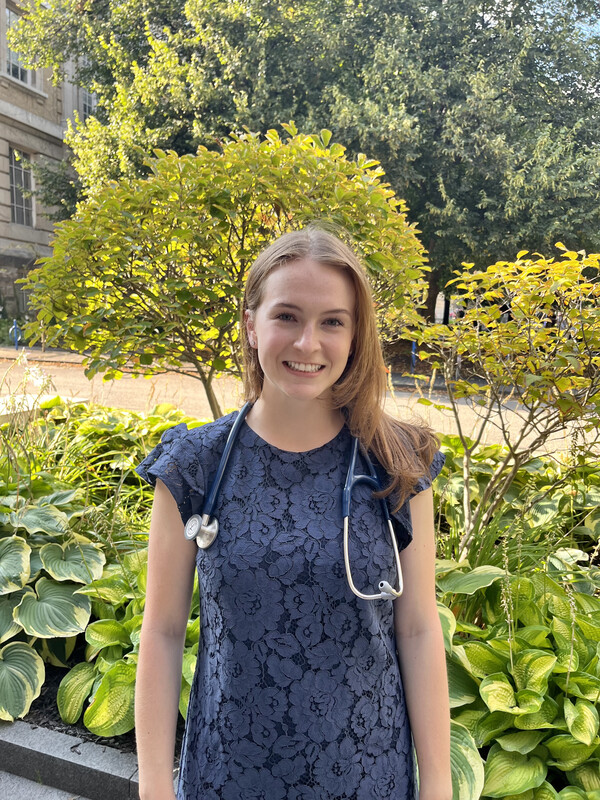
TM: Can you tell us a bit about your background and what led you to pursue a career in medicine?
MM: I’m originally from Calgary, AB, and completed my undergraduate degree in the Health Sciences program at Queen’s. For as long as I can remember, it has been my dream to become a doctor. This dream was originally born out of the passion and intrigue I recognized in myself while learning about the cardiac conduction system in high school, later reinforced by the intellectual curiosity I experienced in my postsecondary studies and, most significantly, by my appreciation for meeting and forming meaningful connections with people from all walks of life.
TM: What are the most valuable lessons or insights you've gained during your time as a medical student that you feel are essential for incoming students to understand as they begin their medical education journey?
MM: When I reflect on the insights I learned during my first year of medical school, the first word that comes to mind is “balance.” It is no lie that medical school can be challenging and feel overwhelming at times. However, with the bi-weekly testing structure at Temerty Medicine, I quickly learned that holing up in my apartment like a hermit and eating and sleeping poorly prior to every ME would not be a sustainable or enjoyable strategy for my medical school journey. Instead, for the first time in my life, I began to consistently protect time in my schedule for me, whether that involved working out, meal prepping, or going to see a movie with friends, and in doing so, I became more efficient and purposeful in my studying and learning. The advice I would offer to the incoming 2T8s is, of course, to study hard, but, importantly, to do so in a way that protects the “me time” in their schedules.
TM: How have you balanced the demanding workload of medical school with your personal well-being and what advice would you give to incoming students on maintaining a healthy work-life balance?
MM: During our portfolio sessions this year, we talked a lot about the following analogy: “Just as airplane passengers must put their oxygen masks on before they can assist others, medical students must prioritize their own health and wellness to ensure they have the capacity and emotional bandwidth to learn and care for others.” For me, this analogy was a bit difficult to digest, as I spent the majority of my undergraduate degree stressed about marks and, as a result, leading quite an unbalanced life at times. However, over the past year, I’ve experienced a shift in mindset, from prioritizing my results to prioritizing my understanding and well-being in my learning. Everyone is different, but for me, going to a spin class with friends, trying out new recipes, and reading provides my life with balance and allows me to be physically and emotionally fit enough to handle the workload of medical school.
TM: Are there any campus activities you enjoy when you are not studying or working with patients?
MM: This past year, I really enjoyed playing on the medical student intramural soccer team, and intend to do so again this year!
TM: What role has mentorship played in your medical school experience, and how do you intend to facilitate connections between incoming students and potential mentors during orientation?
MM: I’ve been very fortunate to have an array of kind, dedicated tutors in my case-based learning and clinical skills courses, who have encouraged myself and my peers to shadow them or their colleagues to learn about their specialities. Shadowing and getting to know my tutors was a highlight of my first year! Having benefited so much already from the mentorship opportunities at Temerty Medicine, facilitating connections between the incoming 2T8s and mentors has been a goal of myself and of Team NITRO. We hope to help 2T8s connect with 2T7s through our 2T7/2T8 Mentorship Match Program and with members of faculty through our Dean’s Breakfast event.
TM: What's the most unusual or unexpected item in your medical school backpack that you can't live without?
MM: The most unusual or unexpected item in my backpack that I can’t live without would be my day planner. I appreciate that most of my peers live in the 21st century and use digital calendars to organize their lives, but I’m old school!
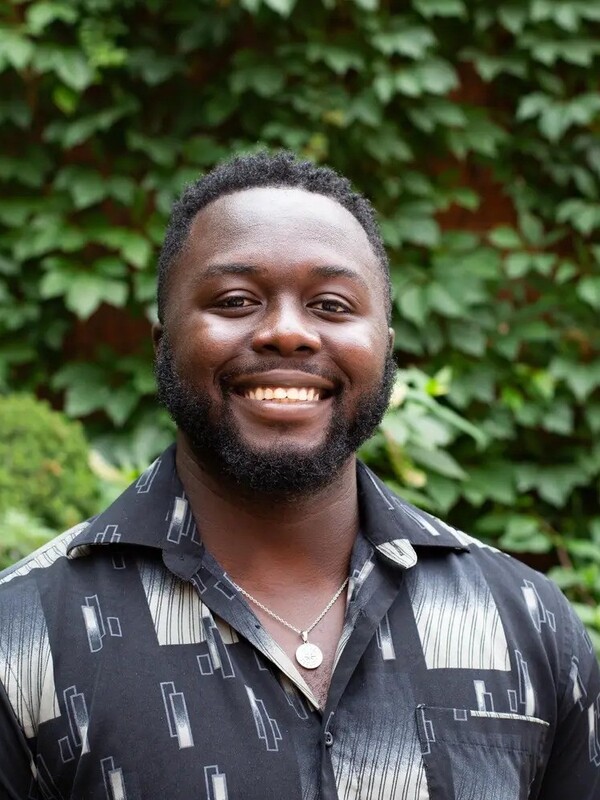
TM: Can you tell us a bit about your background and what led you to pursue a career in medicine?
PE: I did my undergraduate degree in Medical Radiation Sciences at McMaster University. With that degree, I worked as an x-ray technologist in the hospital for about a year before I entered my first year of medicine. Through my work as an x-ray tech, I had the opportunity to visualize the insides of patients’ bodies.The human body was always fascinating to me from a very young age. I liked everything--from the physics of muscle contraction to the neurotransmitters in our nervous system. Even though I enjoyed my career as an x-ray tech, imaging was just one piece of the puzzle--and I wanted the opportunity to discover the full picture of a patient’s condition. I also knew being a holistic physician meant embodying important qualities such as leadership and compassion to a great degree, which greatly appeals to my ideal future self.
TM: What are the most valuable lessons or insights you’ve gained during your time as a medical student that you feel are essential for incoming students to understand as they begin their medical education journey?
PE: Try not to spread yourself out too thin. You will find that there will be many competing demands for your time: friends, family, extracurriculars, work, volunteering, personal ambitions etc. Start off slow in establishing a routine, and take some time to reflect on your physical, mental and emotional limits as an individual. There will always be a myriad of opportunities present and you’re going to want to feel like doing it all. Start off with the things that you feel are most important to you, and then add on as you establish more of a foundation. Do not be afraid to say no. You got this!
TM: How have you balanced the demanding workload of medical school with your personal well-being and what advice would you give to incoming students on maintaining a healthy work-life balance?
PE: Take some time to reflect on the type of learner you are. Do you need to go to lectures to absorb information? Do you do better in groups or alone? What motivates you to study? Try to optimize your studying based on these/similar questions and you will be able to save some time. Also, I know it will be difficult to get out of the “100% on every test” mindset, but try to shift your priority to understanding the core components of the subject material and its clinical relevance. I am not saying you should slack, but the hours that you used to jump from 95 - 100% on a test, could’ve also been used to relax or spend time with friends and family. Anything above a pass shows up the same on the transcript, so please take it easy on yourself. You got this!
TM: Are there any campus activities you enjoy when you are not studying or working with patients?
PE: I loved doing intramurals! The athletics committee under MedSoc organizes teams for so many different sports such as volleyball, soccer, basketball, tennis and even dodgeball! Even though you may not consider yourself to be a sporty person, there are many different skill levels available and it's such a fun way to meet new friends and upper years!
TM: What role has mentorship played in your medical school experience, and how do you intend to facilitate connections between incoming students and potential mentors during orientation?
PE: Mentorship has played a significant role in medical school experience. With upper year mentors, I have been better prepared for certain parts of the curriculum and have also been shown opportunities that aren’t as visible to everyone. Everyone needs an upper year, resident or physician in their corner, so try to explore all the mentorship opportunities available and see what is right for you! This year, I led a 2T7/2T8 mentorship program through O-Week, and incoming first years have already been able to connect with upper years before O-Week! In addition, many of our events will have volunteers who will be present to share their experiences with the first years alongside helping out with O-Week activities.
TM: What’s the most unusual or unexpected item in your medical school backpack that you can’t live without?
PE: I love this question because I feel like everyone will have such different answers. Personally, it would be my container of Vaseline. My hands and lips get dry really easily. Even though I may moisturize in the morning, if we have a day where we have to be in class from dawn till dusk, that container is my savior and keeps me feeling fresh.
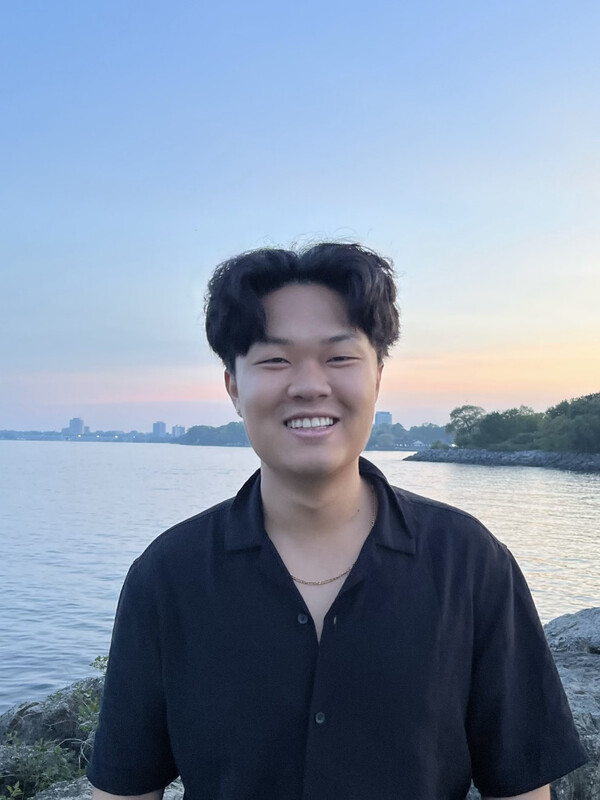
TM: Can you tell us a bit about your background and what led you to pursue a career in medicine?
ML: In all honesty, my path to pursuing medicine began as half following in my (ex-pre-med) brother’s footsteps, and half listening to the incredibly encouraging words of my school teachers growing up. Of course, with time I was able to develop a very deep appreciation for the sciences, with a specific fascination in human physiology. I can most distinctly recount, though, that the some of the most impactful experiences for me were being a patient in the Toronto hospitals – specifically SickKids Hospital, and seeing myself in the shoes of the amazing doctors that helped treat me. Eventually, I would go on to complete my Bachelor of Medical Sciences at Western University, and live my long-standing dream of returning to my home town to attend medical school.
TM: What are the most valuable lessons or insights you've gained during your time as a medical student that you feel are essential for incoming students to understand as they begin their medical education journey?
ML: A very common, but solid piece of advice: you are your own worst enemy. Here’s a really excellent recipe for Impostor Syndrome - go through a ridiculously difficult admissions process, then add getting accepted and immediately being surrounded by some of the most successful people ever at the best medical school in the country!! You will look around at your friends who seem to have it all together while you fail; while you struggle – and you will ask yourself if you’re really cut out for this. Chances are, they’ve all done the same thing at one point or another. Be kind to yourself; talk to yourself like you would a friend. Remind yourself of your successes, and take people’s word for it when they tell you how great you are.
TM: How have you balanced the demanding workload of medical school with your personal well-being and what advice would you give to incoming students on maintaining a healthy work-life balance?
ML: I think all U of T med students can agree that the pass-fail system is a spectacular departure from the OMSAS GPA conversion table that we’re all too familiar with. This really was the key for me – the courses are set up that you either pass or fail, and that a 75 (give or take) is the same as a 95. Throughout the year, I learned to better accept the point of diminishing returns (which I really struggled with in undergrad), and get comfortable with calling it an early night or saying yes to those spontaneous plans. I think it’s common for medical students to struggle with maintaining a healthy work-life balance, so I’d encourage incoming students to begin focusing early on in the year (before it gets busier!) on figuring out what wellness and balance looks like for them, keeping in mind that it’s going to look a little different for everyone.
TM: Are there any campus activities you enjoy when you are not studying or working with patients?
ML: Truthfully, I am not well-versed on campus activities, mostly because I am about as athletic as a log, and most of the activities I’ve otherwise partaken in this year are located off campus. However, there are always cool things going on, such as the wide variety of intramurals that students can sign up for, as well as the unique wellness activities that take place in our med student lounge in MSB.
TM: What role has mentorship played in your medical school experience, and how do you intend to facilitate connections between incoming students and potential mentors during orientation?
ML: I’ve found mentorship to be among the most important things for discovering who I am as a medical student and future medical professional. It’s incredibly helpful to have people who can say “been there, done that” for you – someone who can provide you with advice, moral support, encouragement, and an informed second opinion. Beyond this, there’s so much information to know about the field of medicine outside of the formal curriculum that would be difficult to come across without a mentor.
As orientation leaders, we are in a unique position in which we already know the volunteers in our class, and where we can get to know the incoming students. One way I intend on using this week is as an opportunity to directly connect incoming students with my classmates who I believe would be good mentors for them. I think the best thing that we can do is to make the class feel comfortable coming to us as a proxy for our classmates, but also to foster a safe space for them to make those connections themselves. I have no doubt that our peers will make for excellent mentors - there’s just this amazing culture in medical school where we are literally immersed in an environment full of people who are so willing to meet new people and help one another.
TM: What's the most unusual or unexpected item in your medical school backpack that you can't live without?
ML: I tried so hard to think about something cool but my honest answer is gum. I really enjoy coffee, and food… and I am also constantly dehydrated. If I don’t have gum on me, I am 50% less social because I’m scared to subject people to potentially bad breath – you know, like in that episode of SpongeBob? Because of this, I always try to have two packs of gum on me at all times. Usually they’re in my pocket, but I keep one in my bag for emergencies!!

